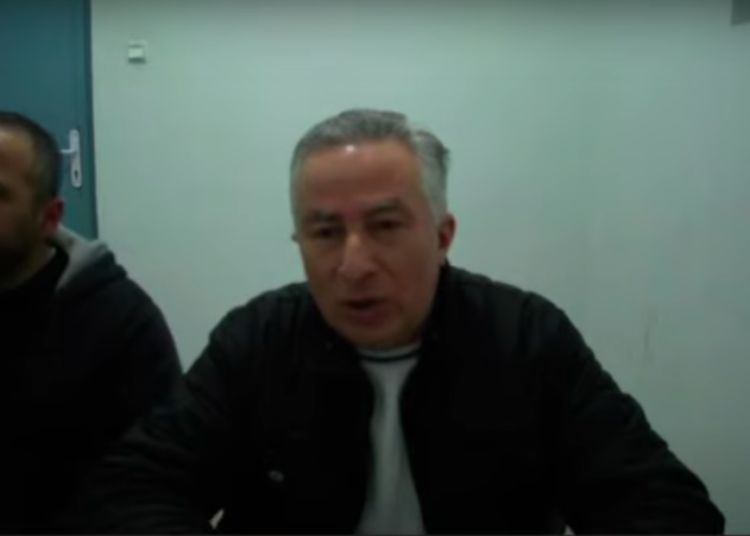Levent Kenez/Stockholm
Former colonel Arif Kalkan, who worked in the intelligence section of the Turkish Gendarmerie Command, revealed details of the torture and abuse he suffered at a police station during testimony in court following his detention during a controversial coup attempt in 2016.
Kalkan said he was threatened with harm to his family if he refused to sign a statement prepared by the police. Kalkan’s statement, allegedly taken under torture, was used as evidence in documents prepared by the Supreme Court of Appeals.
According to a video recording obtained by Nordic Monitor, Kalkan said in his testimony that his statement to the police was changed and turned into a completely different scenario. Telling the panel of judges that he was detained 25 days after the July 15, 2016 coup attempt, he was threatened with photos of brutally tortured generals who had been detained before him.
The part of Kalkan’s testimony in court where he said he was threatened with harm to his family:
Kalkan also said the police officers told him nothing would happen if they killed him. In fact, the police officers knew they were legally protected when making this threat. Torturers in Turkey were shielded by a government decree issued by President Recep Tayyip Erdogan that provided blanket immunity for officials who were involved in coup investigations. Decree-law No. 667, issued by the government on July 23, 2016, granted sweeping protection for law enforcement officers in order to prevent victims from pressing complaints of torture, ill-treatment or abuse against officials. There were multiple cases in which Turkish prosecutors refused to investigate torture allegations, citing this decree-law, or KHK (Kanun Hükmünde Kararname).
As of today, no prosecution has been initiated against people who tortured detainees despite multiple complaints filed by the victims and their lawyers.
Kalkan added that he told the police he didn’t relate any of the details that appeared in the statement put in front of him but said he had to sign it since the police threatened to detain and rape his wife and daughters if he refused.
Explaining that he was in civilian clothes throughout the night in the barracks on July 15, 2016, Kalkan said that with the news that warplanes had taken to the air and that the Bosporus Bridge was closed, he thought that there might have been a terrorist attack under way.
Despite claiming he was not involved in any activity related to the coup, Kalkan was sentenced to life in prison on July 17, 2018. In 2022 the Supreme Court of Appeals upheld the sentence.
Kalkan’s statement that he claimed to have been taken under duress was included in an information booklet prepared by the Supreme Court of Appeals after the coup. The fact that the court, which had the authority to uphold or reverse the sentence handed down to Kalkan, declared him guilty before the appeals process was concluded is an example of how coup attempt cases are handled in the Turkish judiciary, which is under the strict control of the president.
Torture and other inhumane treatment have become part of domestic policy in Turkey under the government of President Erdogan. This practice peaked in the wake of the July 2016 coup attempt, which was used by the Erdogan government as a pretext for cracking down on dissidents. Despite the repeated calls of international organizations including the UN, the Council of Europe and the EU as well as various NGOs, Turkish authorities have continued to this day to turn a deaf ear to combatting torture and to punishing torturers in defiance of its international obligations. Conversely, in decree-laws enacted during the ensuing two-year state of emergency, the government provided legal protection to torturers, thus encouraging torture and allowing the torturers to act with impunity.
The 2016 failed coup was believed to have been a false flag operation plotted by President Erdogan, his intelligence chief Hakan Fidan and then-military chief Hulusi Akar. Erdogan used the putschist attempt as a pretext to consolidate his power, purge pro-NATO officers from the military and launch a cross-border military incursion into Syria. Erdogan blamed Turkish Muslim scholar Fethullah Gülen, resident in the US, for the attempt and launched a major witch-hunt against his followers on dubious criminal accusations. Gülen has strongly denied any role in the abortive putsch, and the Turkish government has so far failed to present any evidence linking Gülen to the coup attempt.
Kalkan’s full testimony:












